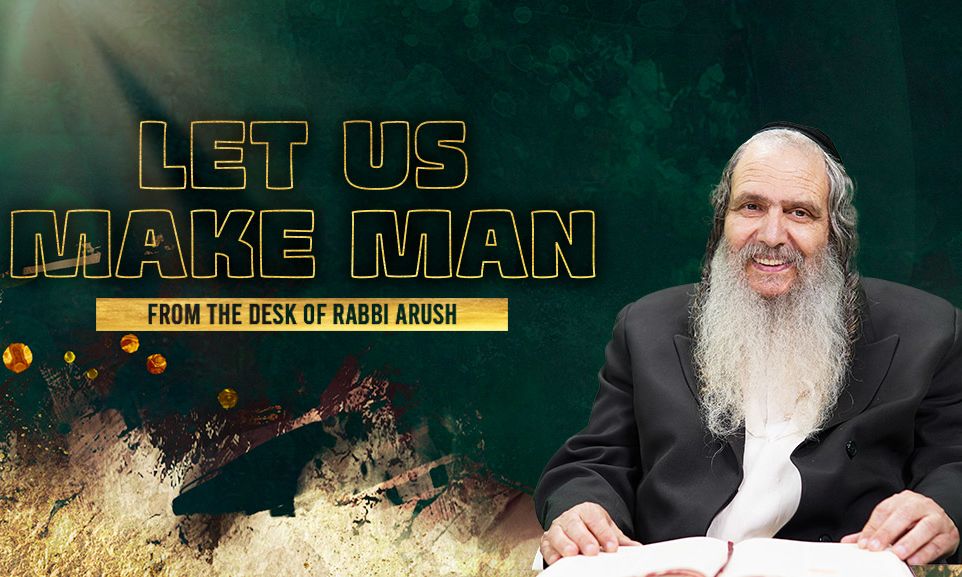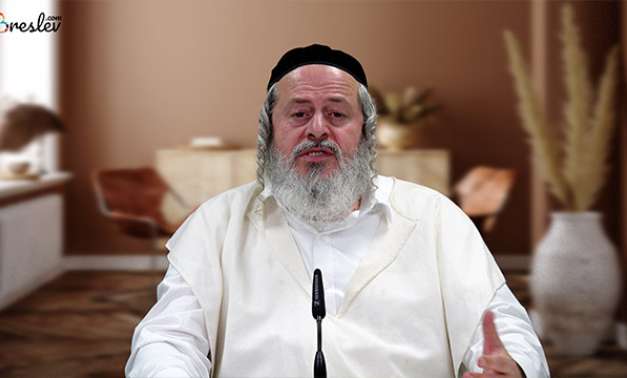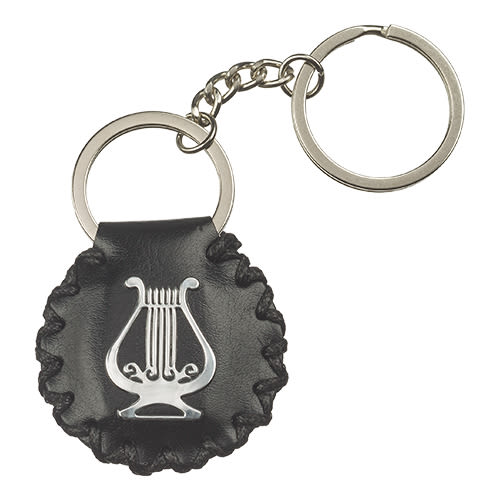
Let Us Make Man
We do not forget for even a moment the great disaster that took place on Lag B’Omer 2021. The first step towards the tikkun of man is the tikkun of speech. He who corrects his speech can correct all his character traits.

Social Climate Change
If in the past the news reports covered events in Israel and abroad, today the news mainly deals with words: What X said, and how Y responded to that, what prime minister A said, and what prime minister B replied; was that statement too strong or too weak? Was it the proper thing to say in this circumstance or not? The goal of interviews, too, has long stopped being to present facts or policies; now it is to get the interviewee to come out with a statement, condemnation, or commendation, which will become tomorrow’s headlines.
Words, words, words.
Whole teams of writers and media consultants think about every word that is uttered or written. And the greatest skill demanded from celebrities is to walk between the raindrops – to avoid expressing an opinion and be extremely careful not to awaken the sleeping lions with some untoward statement.
All the furors in the media are almost only about words – sayings and statements. Even the actual deeds are attributed to statements: So-and-so said this, and that is why there is rioting.
Actions have become secondary in importance to speech.
In the “social” networks as well, people become “influencers” and create media storms not as a result of their actions or their having an impressive record of contributions to the public – but only because of words. And how careful everyone is today not to say anything – even positive – that contains a label that can be taken as being derogatory towards a person or a group. Even calling someone “old” is considered derogatory, and the do-gooders who are proud of their sensitivity are careful to say “senior citizen” instead.
Words Create Reality
That is the reality in Israel and, indeed, all over the world. And we, as believing Jews, must look at the incredible message Hashem is sending us – a message that is very hard to ignore:
“My dear Jewish people,” says the Creator, “Listen well. Words are very powerful. Speech is what runs men and the world. Every word should be weighed carefully.” The Torah measures not only actions, but speech as well, and attributes a not-insignificant weight to them – in fact, a weight usually much greater than that of actions.
So true, what you say to your wife and children at home, or to the bus driver, or to a colleague at work with whom you are having an argument – in most cases will not make the headlines and will not expose you to harsh public criticism, but in the reality of your life they can cause great changes. Shalom bayit (peace at home) and success in child education, social success, and even success in business are often determined by words.
And in general, we, believers and descendants of believers, believe that Someone is listening. And every casual conversation between a man and his wife is repeated to him on the day of judgement, and we will be called upon to account for every single word that we spoke. The reality of our generation is just an extraordinary demonstration of this idea.
If we would just take even a quick look at the far-reaching implications of the words we say, we would have to spend a good few days thinking about every sentence we wish to utter.
We devote so much thought to small decisions in life, such as which item of clothing or car to purchase, but when it comes to the words we say, which have earth-shaking potential – we speak them indiscriminately and without a moment of thought.
Soft Language
The midrash tells of how Rabbi Yehuda Hanasi, known also as “Rebbi”, made a dinner for his disciples. Presumably, it was a sumptuous one. Rabbi Yehuda Hanasi was very wealthy, and his table was graced with truly royal cuisine. The top echelons of society were hosted at his home and ate there. The disciples were served tongues. Some were soft and good to eat, some were tougher and not as tasty. The disciples began to examine each tongue and check it out before selecting it.
Rebbi had been waiting for such an opportunity to demonstrate an idea to his disciples and teach them a moral and said, “Look, my sons, how much you examine each tongue before you put it into your mouth, making sure that it will be the best quality so that it will slide down your throat as smoothly as possible. But do you pay attention to the words of the tongue that leave your mouths, that they should always be soft and pleasant, good and acceptable, strengthening and healing, happiness-inducing and encouraging? Words that will enter the listeners’ hearts softly, and will be like a cool, refreshing drink to a tired traveler?”
Maintaining the World
In this week’s parasha, the Torah commands us: “Al tonu – Do not distress each other.” Chazal explain that the meaning of this mitzvah does not relate only to cheating a person of his money, and also, and mainly, to causing distress in our speech: we should not cause any pain to others in our speech; we should think well about every word that leaves our mouths before we speak it, making sure that it will not hurt, distress, belittle the listener, or cause him to feel miserable and small.
Chazal say that the world stands on he who remains silent during an altercation. Now, the one who does not speak out when there is an argument going on, does not have to remain silent forever; it is possible that later he will respond and say that he thinks. But he does not respond immediately, because he knows that every word must be weighed, and in the midst of an argument it is impossible to think clearly. Therefore, he waits, calms down, and only then considers what to say and how to say it – and mainly, what not to say – so that his words will be for the good of all.
And that is what maintains and upholds the world, not only as a spiritual segula, but also on the material level: if every person would pour out all his feelings during a fight, the fights and disagreements would destroy our world completely.
If we spend more time being silent and be less in a rush to express everything, we would save ourselves and the world countless disagreements at home and in the street. Our children would grow up healthier and with stronger personalities. The entire world would be better, more beautiful, more pleasant. We have so many sayings of Chazal praising staying silent and so many stories about the great rabbis who knew to refrain from speech and to weigh every word.
Human beings express in their speech their entire inner worlds and feelings. That is where a person’s entire essence can be seen. All communication with others takes place by way of speech. Couples who speak respectfully and reasonably to each other – will certainly prevail. In other words, the main mitzvah of “You shall love your fellow as yourself” is expressed and realized through speaking to others.
One Decisive Step
We are not forgetting – not even for a moment – the great disaster that took place on Lag B’Omer in Meron 2021, at the height of the festivities. It was a tragedy in which forty-five holy souls were taken from us – like the numerical value of “Adam” – in order to awaken us to perform tikkun of man by way of ahavat Yisrael and the correction of the sin of sinat chinam – baseless hatred.
And the first step towards the tikkun of man is the tikkun of speech, because human beings are called “speakers”, and he who corrects his speech, the way is open for him to full correction of all his character traits.
Ahavat Yisrael is a very high level; it represents the perfection of man. It is impossible to reach ahavat Yisrael in one leap. And like in any great aspiration, one has to begin with one small step. A small but extremely important step.
This first step is speech. Speech is close to us; it is within our mouths and our hearts to do it. if we just think more about what we say, wait a bit before responding, consider every word that we allow to leave our mouths both at home and outside and with the children – we will come closer, in a deep and significant way, to ahavat Yisrael.
And just as it is important not to cause damage with speech, so too it is very important to do good with our speech: to encourage, strengthen, bring closer, enliven, be happy for others, give praise etc.
Dear Jews, let us make an effort to speak good words in honor of the soul of the tzaddik, about whom it was said “’Let Us make man’ was said for you”, and to provide an illui neshama for all the holy people who died in Meron, among them my dear student, Rabbi Moshe Simcha ben Yisrael Tzarfati zt”l. For them, and for the honor of Hashem, we will refrain from evil acts and do good with our speech – and watch as a great light of ahavat Yisrael fills the world.











5/28/2022
𝚆𝙾𝙽𝙳𝙴𝚁𝙵𝚄𝙻 𝚆𝙾𝚁𝙳𝚂! 𝚝𝚑𝚊𝚗𝚔 𝚢𝚘𝚞, 𝚁𝚊𝚋𝚋𝚒 𝙰𝚛𝚞𝚜𝚑….
5/22/2022
As always, Rabbi Arush is such an inspiration.